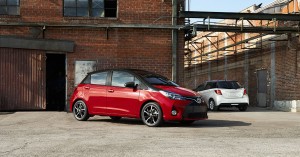 A new car might be out of your budget, but a used car could lead to expensive repairs. So how do you decide? There are good reasons for buying new and used vehicles, so it depends on what is most important to you. A used car might be cheaper but a new car will probably need fewer repairs. Here are some things to consider when buying a car.
A new car might be out of your budget, but a used car could lead to expensive repairs. So how do you decide? There are good reasons for buying new and used vehicles, so it depends on what is most important to you. A used car might be cheaper but a new car will probably need fewer repairs. Here are some things to consider when buying a car.
How Will You Use the Car?
If most of your driving involves carting your kids from place to place, your main focus is probably on safety and reliability. In this case, you might decide a new car that meets the latest emissions and fuel efficiency standards suits you best. New cars also carry lengthy factory warranties.
If you’re a commuter who drives long distances, you may not want to put all those miles on a new car that depreciates quickly. If you work in a congested area, a used car might be better because you won’t care as much if it gets dinged or scratched from time to time.
If you’re looking for a special weekend car or something that isn’t made anymore, you may want to buy a used car. For example, Toyota discontinued the Rav4 EV after only three years and 1,500 vehicles, but not before they developed a cult following. Many owners kept them so well-preserved that they are still selling for nearly their original market price. The Rav4 EV was a huge advancement to electric SUVs.
How Much Do You Want to Spend?
Many people live by the rule that your car payment can be up to 20 percent of your take-home pay. Make sure to think about the down payment and insurance premiums in your budget. Edmunds.com suggests putting 20 percent down for a new car and 10 percent down for a used car. If money is the main issue when buying a vehicle, consider a cheaper used car instead.
Remember that when you buy a new car, they come with factory warranties which will save you money on major repairs. Also, most new cars won’t need any major repairs for a long time. Used cars sometimes have too much mileage or are too old to still have warranties, so even though they might be cheaper up front, repairs could add up.
Understand the Pros and Cons
Buying a new car means you’ll get fewer features for more money, but you’ll get the full new car warranty and be the original owner. Buying a used car means you’ll get more for your money, but you’ll have a shorter warranty, if you have one at all. Used car loans typically have higher interest rates than new car loans. However, new cars are usually more expensive to insure than used cars.
If you still don’t know whether to buy new or used, there are some other choices. Certified pre-owned cars are generally newer with one previous owner, low mileage, and no history of damage. These cars will be more expensive than used cars but cheaper than new ones. Another option is a demonstration car, which the dealer used in the showroom but hasn’t had a previous owner. These cars are almost new with just about the same advantages, all with a lower price tag.
There’s a lot to think about when buying a car, and once you figure out what’s most important to you, you’ll be able to decide between new or used.



![[Facebook]](https://www.scottclarkstoyota.com/blogs/207/wp-content/plugins/bookmarkify/facebook.png)
![[LinkedIn]](https://www.scottclarkstoyota.com/blogs/207/wp-content/plugins/bookmarkify/linkedin.png)
![[Twitter]](https://www.scottclarkstoyota.com/blogs/207/wp-content/plugins/bookmarkify/twitter.png)
![[Yahoo!]](https://www.scottclarkstoyota.com/blogs/207/wp-content/plugins/bookmarkify/yahoo.png)
![[Email]](https://www.scottclarkstoyota.com/blogs/207/wp-content/plugins/bookmarkify/email.png)


